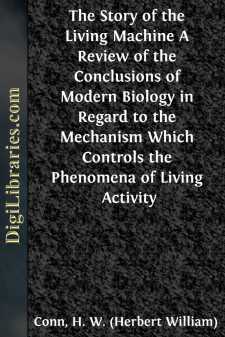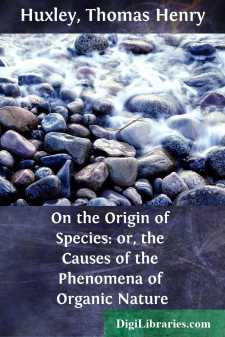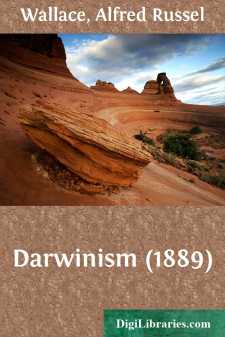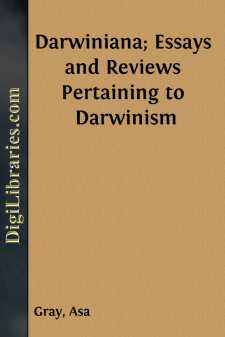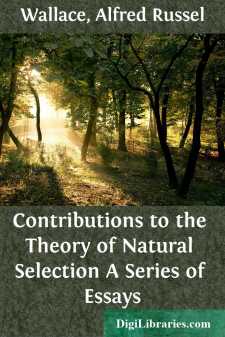Science
- Astronomy 18
- Biology
- Chemistry 13
- Electricity 1
- General 38
- History 6
- Light 1
- Paleontology 2
- Philosophy & Social Aspects 1
- Physics 3
- Relativity 2
- Study & Teaching 1
- Waves & Wave Mechanics 1
Biology Books
Sort by:
CHAPTER I A REVALUATION OF THE EVIDENCE ON WHICH THE THEORY OF EVOLUTION WAS BASED We use the word evolution in many ways—to include many different kinds of changes. There is hardly any other scientific term that is used so carelessly—to imply so much, to mean so little. Three Kinds of Evolution We speak of the evolution of the stars, of the evolution of the horse, of the evolution of the steam...
more...
CHAPTER I. IS THE BODY A MACHINE? The problem before us in this section is to find out to what extent animals and plants are machines. We wish to determine whether the laws and forces which regulate their activities are the same as the laws and forces with which we experiment in the chemical and physical laboratory, and whether the principles of mechanics and the doctrine of the conservation of energy...
more...
IN the preceding five lectures I have endeavoured to give you an account of those facts, and of those reasonings from facts, which form the data upon which all theories regarding the causes of the phenomena of organic nature must be based. And, although I have had frequent occasion to quote Mr. Darwin—as all persons hereafter, in speaking upon these subjects, will have occasion to quote his famous...
more...
WHAT ARE "SPECIES," AND WHAT IS MEANT BY THEIR "ORIGIN" Definition of species—Special creation—The early Transmutationists—Scientific opinion before Darwin—The problem before Darwin—The change of opinion effected by Darwin—The Darwinian theory—Proposed mode of treatment of the subject. The title of Mr. Darwin's great work is—On the Origin of Species by means of...
more...
In the course of the present year several foreign commentaries upon Mr. Darwin's great work have made their appearance. Those who have perused that remarkable chapter of the 'Antiquity of Man,' in which Sir Charles Lyell draws a parallel between the development of species and that of languages, will be glad to hear that one of the most eminent philologers of Germany, Professor...
more...
I EVOLUTION. THE LIVING ORGANISM AND ITS NATURAL HISTORY The Doctrine of Evolution is a body of principles and facts concerning the present condition and past history of the living and lifeless things that make up the universe. It teaches that natural processes have gone on in the earlier ages of the world as they do to-day, and that natural forces have ordered the production of all things about which...
more...
THE THREE HYPOTHESES RESPECTING THE HISTORY OF NATURE. We live in and form part of a system of things of immense diversity and perplexity, which we call Nature; and it is a matter of the deepest interest to all of us that we should form just conceptions of the constitution of that system and of its past history. With relation to this universe, man is, in extent, little more than a mathematical point;...
more...
IN the lecture which I delivered last Monday evening, I endeavoured to sketch in a very brief manner, but as well as the time at my disposal would permit, the present condition of organic nature, meaning by that large title simply an indication of the great, broad, and general principles which are to be discovered by those who look attentively at the phenomena of organic nature as at present displayed....
more...
by:
Asa Gray
These papers are now collected at the request of friends and correspondents, who think that they may be useful; and two new essays are added. Most of the articles were written as occasion called for them within the past sixteen years, and contributed to various periodicals, with little thought of their forming a series, and none of ever bringing them together into a volume, although one of them (the...
more...
PREFACE. The present volume consists of essays which I have contributed to various periodicals, or read before scientific societies during the last fifteen years, with others now printed for the first time. The two first of the series are printed without alteration, because, having gained me the reputation of being an independent originator of the theory of “natural selection,” they may be...
more...



